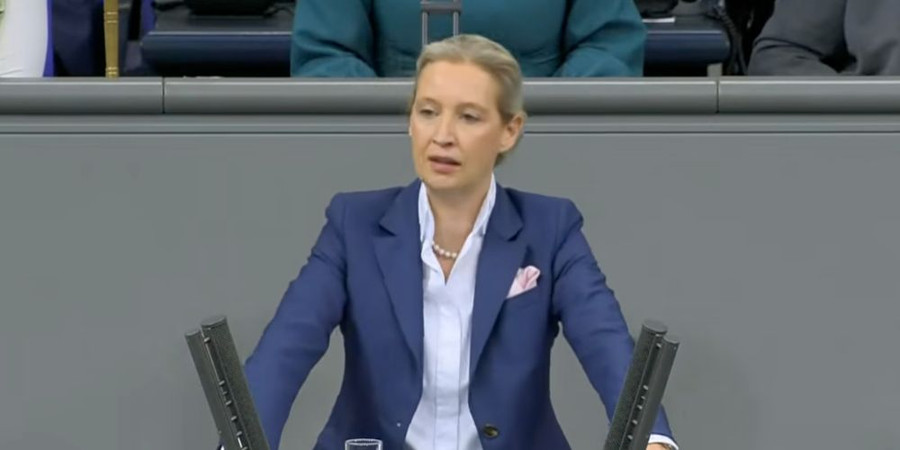Pope Francis has teamed up with a member of the Rothschild family and multiple multinational corporations including Mastercard and Bank of America, to ensure the creation of a new, global economic system.
The "Council for Inclusive Capitalism with the Vatican, founded by Lady Lynn Forester de Rothschild, launched Tuesday, with a proclamation promising that the council "answers the challenge by Pope Francis to apply principles of morality to business and investment practices"
The press release included a quote from its Rothschild founder, who explained that "Capitalism has created enormous global prosperity, but it has also left too many people behind, led to degradation of our planet, and is not widely trusted in society."
The announcement emphasized the "urgency of joining moral and market imperatives to reform capitalism into a powerful force for the good of humanity," and laid out a desire to build a new "economic system" that uses "capitalism" and an "inclusive instrument." The pronouncement brings to mind the sort of "public-good" central planning promoted in Italy and Germany in the 1930's where businesses were directed to act in a unified manner to promote public policy for the good of the people. This approach is simply globalist, rather than nation-state, orientated.
"Under the moral guidance of His Holiness Pope Francis and His Eminence Cardinal Peter Turkson, who leads the Dicastery for Promoting Integral Human Development at the Vatican, and inspired by the moral imperative of all faiths, the Council invites companies of all sizes to harness the potential of the private sector to build a fairer, more inclusive, and sustainable economic foundation for the world," read the announcement.
Other notable listed "Guardians" include Rockefeller Foundation President Rajiv Shah, President and the Treasurer of the State of California.
The Council boasts that these leaders represent more than $10.5 trillion in assets under management, companies with over $2.1 trillion of market capitalization, and 200 million workers in over 163 countries."
The Guardians will meet annually with the Pope to make the council's vision of "inclusive capitalism" a reality. The components of said vision are as follows:
Equality of opportunity for all people to pursue prosperity and quality of life, irrespective of criteria such as socio-economic background, gender, ethnicity, religion or age;
Equitable outcomes for those who have the same opportunities and seize them in the same way;
Fairness across generations so that one generation does not overburden the planet or realize near-term benefits that incur long-term costs, at the cost of future generations; and
Fairness to those in society whose circumstances prevent them from full participation in the economy.
"The Principles of Inclusive Capitalism appeal to a fundamental sense of justice," explains the group. These stated principles are as follows:
TRUSTED -by people to meet their needs. This credibility is established by stakeholders in the system acting responsibly, transparently and with integrity, and should there be a conflict with core values, adopting a prompt and equitable response.
FAIR -and promotes diversity and equality of opportunity for individuals and a level playing field for those who engage with these opportunities. This means striving for a similar outcome for similar inputs and discouraging unjust advantage or exploitation for individual gain.
RESPONSIBLE - where individuals, governments, communities, and companies recognize how their actions impact one another and strive to minimize negative impact.
DYNAMIC -and able to evolve so that it continues to enable and reward innovation, progress, and adaptation.
SUSTAINABLE -where incentives are aligned across generations and the main actors take a long-term perspective. This means considering the future impact of actions taken today on a broad set of stakeholders and on our planet.
The Council has already been busy working with its "stakeholder" partners on various commitments by individual organizations represented. Mastercard, for example, has committed to "purchasing 100% renewable electricity for all our global operations," as well as achieving "pay equity" in the form of "parity across all measures."
Bank of America has promised the council that it will "provide $1 billion through 2024 of additional support to help local communities address economic and racial inequality accelerated by a global pandemic."
Inclusive Capital Partners is a similar group that seeks to leverage capitalism to achieve certain ends. It is represented on the council by Rothschild, and has made its own commitment to advance "racial and ethnic diversity" by using its committee members to "advocate for portfolio companies to have at least 10% of all board seats held by racial or ethnic minorities."
This comes just months after Pope Francis published an anti-capitalist encyclical, warning against individualism, and calling for a collectivist global "rebirth."
"We are more alone than ever in an increasingly massified world that promotes individual interests and weakens the communitarian dimension of life. Indeed, there are markets where individuals become mere consumers or bystanders," he wrote.
"Once this health crisis passes, our worst response would be to plunge even more deeply into feverish consumerism and new forms of egotistic self-preservation," he added.
This recent proclamation, which expressed disdain for "liberal economic policies" and their impact on immigration, was just the latest in Pope Francis' increasingly blatant politically progressive activism and condemnation of capitalism. In 2019, as he declared a "climate emergency," he warned that young people were set to inherit a "spoiled world." Many conservatives viewed a similarly themed encyclical that year as its own attack on capitalism.
 Pope Francis has teamed up with a member of the Rothschild family and multiple multinational corporations including Mastercard and Bank of America, to ensure the creation of a new, global economic system. The “Council for Inclusive Capitalism with the Vatican, founded by Lady Lynn Forester de Rothschild, launched Tuesday, with a proclamation promising that the […]
Pope Francis has teamed up with a member of the Rothschild family and multiple multinational corporations including Mastercard and Bank of America, to ensure the creation of a new, global economic system. The “Council for Inclusive Capitalism with the Vatican, founded by Lady Lynn Forester de Rothschild, launched Tuesday, with a proclamation promising that the […]





